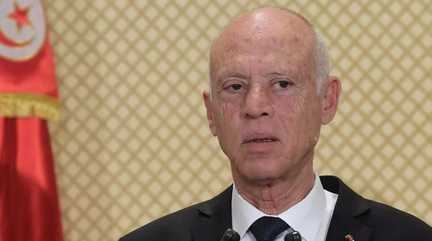
24 Sep 2022; MEMO: The Tunisian Workers' Party announced on Friday that Laws No. 54 and 55 are "fascist and are a serious threat" to the people's aspirations for freedom and democracy.
The party stated that the two laws "do not have any legitimacy" because they are based on an "illegal Constitution".
The statement explained that the Constitution: "Was produced based on President Kais Saied's coup against his government and parliament to take over power and consolidate a programme that is neither national, popular nor democratic."
Law No. 54, issued on 13 September, concerns combating information and communication systems crimes.
The law consists of 38 articles divided into five chapters. They stipulate severe penalties of imprisonment ranging from three to six years and fines between 20,000 and 60,000 dinars (about $6.8 and $18,000) against perpetrators of practices classified as crimes, according to the new law.
As cited by the new law, creating and promoting rumours and false news, publishing unreal or forged documents and displaying pornographic content targeting children are considered a "crime punishable by law".
READ: Tunisia Ennahda leader warns of plot to assassinate Ghannouchi, Larayedh in prison
Law No. 55, issued on 15 September, also focuses on amending the electoral law to adopt the individual voting system and redivide the constituencies.
The party explained that President Saied: "Is taking advantage of the difficulties of living that the overwhelming majority of the Tunisian people are experiencing to approve a group of coercive laws that consolidate his single vision to governance and the state."
The party called on all progressive forces of parties, associations, unions and figures to: "Realise the danger of the fascist populist attack, which brings Tunisia back to a distant past governed by tribalism and the influence of individuals, and seriously undermines the progress achieved by society."
Tunisia has been experiencing an ongoing political crisis since 25 July, 2021, when President Saied imposed exceptional measures, including dissolving Parliament and the Supreme Judicial Council, issuing legislation by presidential decrees and adopting a new Constitution for the country on 25 July.
Political forces led by the Ennahda Movement consider these measures a "coup against the 2014 Constitution and a consolidation of an absolute individual rule," while other forces consider them a "correction of the course of the 2011 revolution," which toppled the regime of President Zine El Abidine Ben Ali.




